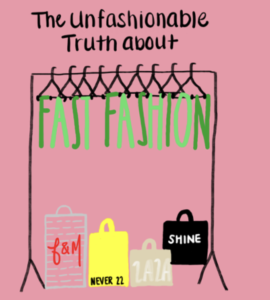
For Ken Pucker, circularity is just another win-win fantasy & distraction for the fashion industry.
Writer, Investor, Advisory Director, Berkshire Partners – Professor of Practice, Fletcher School Tufts University
Last month, the European Parliament set out to ban environmental claims about carbon neutrality based on carbon offsetting schemes. This has caused ripple implications for sustainability and marketing teams, especially their public-facing approach on how to reach ‘net zero’.
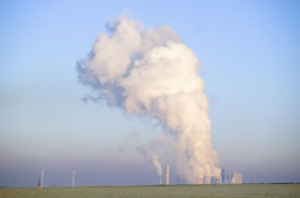 https://www.forbes.com/sites/amynguyen/2023/06/16/carbon-neutral-claims-under-investigation-in-greenwashing-probe/?sh=2e710bfa6431
https://www.forbes.com/sites/amynguyen/2023/06/16/carbon-neutral-claims-under-investigation-in-greenwashing-probe/?sh=2e710bfa6431
This month, three shirts, two dresses, and a pair of shorts arrived at my door. They’re mine, but only for a month. After that, I’ll pack them in a reusable tote bag and send them to a warehouse in Pennsylvania, where they’ll be cleaned and shipped to their next (temporary) owner.
Along with more than 150,000 other people—most of them, like me, women between the ages of 25 and 35—I subscribe to Nuuly, a rental service operated by URBN, the parent company of brands including Anthropologie, Free People, and Urban Outfitters. For just shy of $100 a month, I get a regular influx of new clothing—and a chance to clear my conscience.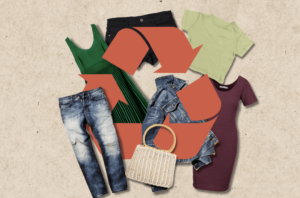
https://time.com/6285257/is-clothing-rental-resale-recycling-sustainable-nuuly/
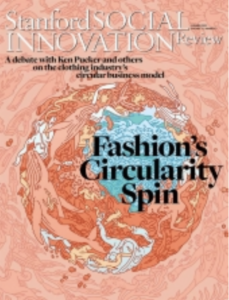 Ken Pucker responds to his readers’ critiques of his Up for Debate article “A Circle That Isn’t Easily Squared” and reiterates his call for a systemic shift in how the fashion industry does business.
Ken Pucker responds to his readers’ critiques of his Up for Debate article “A Circle That Isn’t Easily Squared” and reiterates his call for a systemic shift in how the fashion industry does business.
https://ssir.org/articles/entry/further_reflections_on_fashions_circularity_reckoning
The buzzy concept is a chimaera that distracts from the root cause of fashion’s worsening environmental impact: overconsumption, argues Kenneth Pucker

https://www.businessoffashion.com/opinions/sustainability/op-ed-circularity-is-a-fashionable-fantasy/?utm_source=newsletter_dailydigest&utm_medium=email&utm_campaign=Daily_Digest_260523&utm_term=3PNLIJGNHNEHBCFER4M45JG3V4&utm_content=top_story_3_title
Industries ranging from soft drinks to furniture to  electronics to fashion follow a one-way path of “make, take, and waste.” This linear operating system is straining resources, polluting oceans, and generating mountains of waste. Unrelenting pressure for growth continues to stress biodiversity and accelerate atmospheric warming, thereby increasing the intensity and incidence of drought, flooding, and migration. As a result, the public’s consent to resource-consumptive industries is increasingly at risk.
electronics to fashion follow a one-way path of “make, take, and waste.” This linear operating system is straining resources, polluting oceans, and generating mountains of waste. Unrelenting pressure for growth continues to stress biodiversity and accelerate atmospheric warming, thereby increasing the intensity and incidence of drought, flooding, and migration. As a result, the public’s consent to resource-consumptive industries is increasingly at risk.
https://ssir.org/articles/entry/a_circle_that_isnt_easily_squared
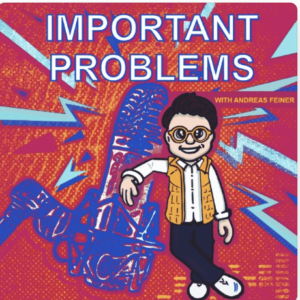
https://podcasts.apple.com/us/podcast/3-the-important-role-of-esg-for-companies-with/id1683622451?i=1000613984210
Asos has dropped its 2030 net-zero emissions target and Crocs has delayed its deadline by a decade, rare public resets as scrutiny of corporate climate goals mounts.
https://www.businessoffashion.com/articles/sustainability/crocs-asos-net-zero-emissions-climate-targets-greenwashing/
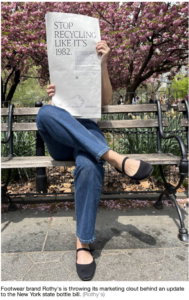
https://www.businessoffashion.com/articles/sustainability/rothys-bottle-bill-new-york-recycling/
Although most people do not typically associate the fashion industry with STEM or science policy, fashion and science are intricately tied to one another due to the detrimental effects the fast fashion industry has on the environment and public health. Not only does the fashion industry generate >92 million tonnes of textile waste and contribute to 10% of global CO2 emissions per year, the chemicals and heavy metals used in the dyeing process are also toxic to humans and aquatic life. Former COO of Timberland and sustainable investing expert, Ken Pucker, then discusses the hurdles of increasing sustainability in the fashion industry. 